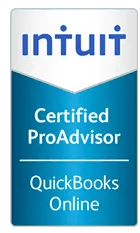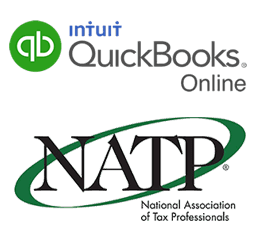3 Financial Habits That Separate Struggling Business from Successful Ones
We’ve seen it time and time again—two business owners in the same industry, offering similar services, but with wildly different outcomes. One is constantly behind, stressed about money, and unsure what’s going on with their finances. The other? Focused, confident, and profitable.
So, what’s the difference?
In many cases, it comes down to financial habits. The good news? These habits can be learned. Here are three of the most important ones:
1. They Review Their Numbers Regularly (Not Just at Tax Time)
Successful business owners don’t wait until year-end or tax season to check in on their finances. They know that monthly financial check-ins help them make smarter decisions—whether it’s adjusting prices, planning for taxes, or cutting costs.
Try This: Set a monthly “Money Date” with yourself or your bookkeeper to review your income, expenses, and profit.
Extra Insight: Looking at your profit and loss report each month can help you spot trends before they become problems—like a jump in expenses or a slow decline in income. Break your income down by service or product type so you can see what’s actually making you money. Use your reports to calculate your net profit margin (net income ÷ revenue) to get a true picture of your financial health—not just your top-line sales.
2. They Budget for Taxes All Year
Taxes aren’t a surprise—you just need to plan for them. Successful business owners set aside money for quarterly taxes and take steps throughout the year to minimize what they owe.
Try This: Look at your current income and set aside a percentage each month based on your tax bracket. (If you don’t know what that is, we can help!)
Extra Insight: Many small business owners fall behind because they underestimate what they owe or forget to plan for self-employment tax (roughly 15.3%). Don’t just guess—your tax rate depends on your profit, your state, and your entity type. If you’re unsure, use your prior year’s taxes as a baseline or ask your accountant to help you run a mid-year projection. This way, you’ll avoid underpayment penalties and stay ahead of the IRS.
3. They Treat Bookkeeping as a Tool, Not a Task
Bookkeeping isn’t just a chore—it’s one of your most powerful tools for decision-making. Owners who see it this way stay organized, track every dollar, and use their reports to make informed choices.
Try This: Ask yourself - can I clearly see how much I earned last month? What my biggest expense category is? If not, it might be time to rethink how you're managing your books.
Extra Insight: Real-time bookkeeping lets you spot things like client payment delays, overspending in certain categories, or recurring charges you may have forgotten about. It also helps you back up deductions in case of an audit. Whether you use QuickBooks or a spreadsheet, the goal is to categorize transactions consistently and reconcile your accounts monthly so your reports are accurate. Without this, your tax return is just a guess—and so is your strategy.
Final Thought:
You don’t need to be a finance expert to run a financially healthy business—you just need the right habits (and sometimes the right support). Start with these three and watch how much more confident you feel running your business.
Need help getting there? We work with business owners who want peace of mind, clarity, and a plan for growth.

















